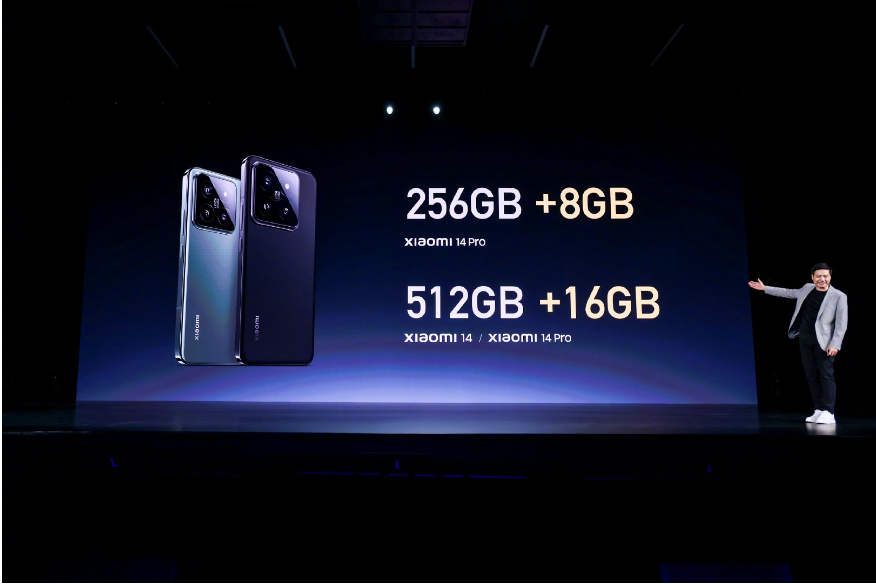Igeekphone October 30 news, in the Xiaomi HyperOS and Xiaomi 14 series new product launch conference last week, Lei Jun announced the launch of an “UltraSpace storage expansion” function. For the 256GB Mi 14 Pro, users get an additional 8GB of space, while for the 512GB Mi 14 and Mi 14 Pro, users get an additional 16GB of space.

Today, Zhang Guoquan, director of Xiaomi’s mobile phone system software Department, interpreted the function, saying that the “UltraSpace storage expansion” function does not pose a lifetime risk to UFS, and old models do not support upgrades.
In addition, Xiaomi has contributed the standard to the UFS Association organization, in order to respect the original, Xiaomi requires chip manufacturers to do a little time protection period, the near future, the major mobile phone manufacturers should be adapted to this function.
According to Lei Jun previously introduced, a nominal 256GB mobile phone storage, the actual real space is actually more than 275GB. Of these, 93.1% of the space is actually available to users, and the remaining 6.9% is called Over Provision, or OP, which is the space occupied by internal storage management. This part of the space can not be used during the use of mobile phones.
Xiaomi works closely with memory manufacturers. First, Xiaomi revised its space management strategy, reducing the space occupied by the OP zone from 6.9% to about 3%. This process requires a deep understanding of how the memory works to ensure that the performance and life of the memory are not compromised while the OP area space is compressed. After many tests and optimizations, Xiaomi found an ideal balance point.
Then, Xiaomi added a logical address mapping range to the Hyper OS file system, allowing it to manage this part of the “new space.” In this process, Xiaomi needs to deeply customize the file system to ensure that it can correctly and efficiently manage this part of the new space. After countless trials and tweaks, Xiaomi’s engineers finally achieved this goal.










